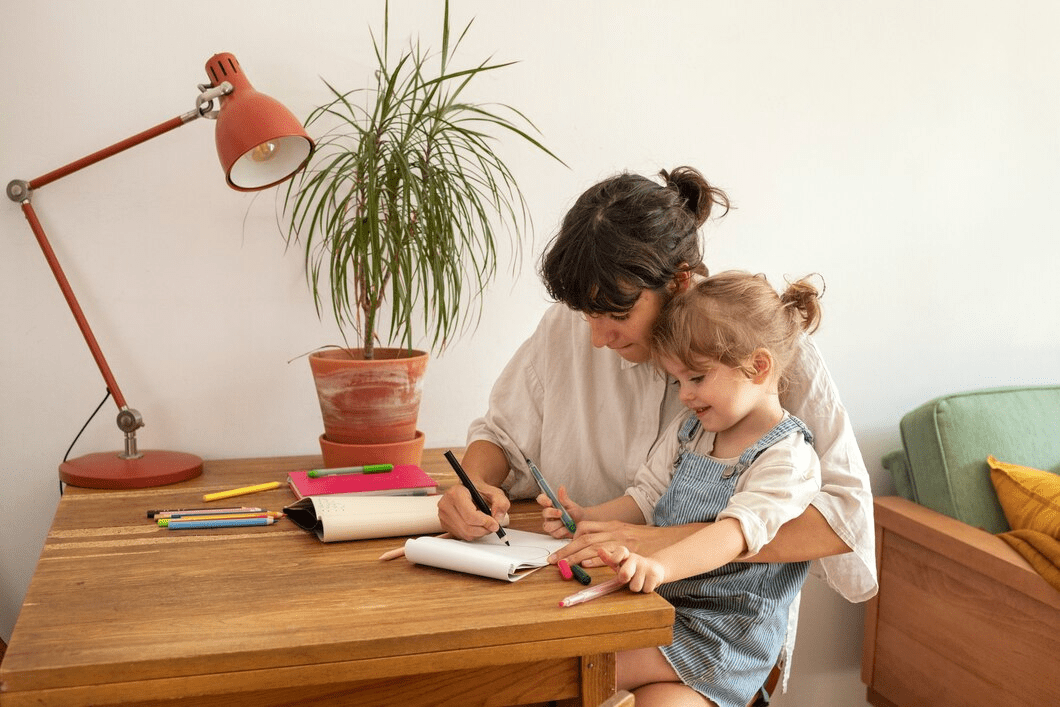As parents, we want our children to learn many vital skills at a young age. When children learn new skills, that helps them to build essential traits such as drive for learning, independence, self-esteem, and hard work, which often is developed through their parent’s effort. However, saying that you want your children to learn differs significantly from teaching them.
This article will provide a quick read-through on how to teach your child life-long skills effectively, be it a hobby such as music or nurturing their potential as capable individuals. Nevertheless, everything starts today, so read more below to get started on the right foot and help your child build their future.

Props and Child-Appropriate Tools
Often, a child’s actions or interests indicate potential, which prompts parents to invest a bit more in that interest and see if it is just curiosity or a potential life-long skill. If we want to train our children to develop that skill, they should have proper and appropriate tools to play around and explore. Take, for example, music; it would be better to let your child play on toy guitars or mini instruments to drive their curiosity.
If you also share the same interest with your child, this could be an excellent starter to empower your relationship as your child slowly grows to learn guitars. Pretty soon, they would talk about gibson les paul guitars, different songs to practice, and eventually setting up with friends with a shared love for music.
In other words, appropriate tools build up a safe and exciting environment for your child. After all, they are built to take in the curiosities of a child and help foster genuine relationships with parents.
Modeling
Have you ever heard the phrase “monkey see, monkey do?” That quote can apply to children. Modeling is one of the most effective ways for your child to learn about the world and adjust to different social environments.
Back to our example with guitars, if your child sees you playing the guitar, they would most likely try to copy your behavior and learn from you, which would still apply to other essential skills like cooking, cleaning, and more. That said, be an excellent model to your children if you want them to learn specific skills or shape their interests early on.
Additionally, when you pair this behavior with good communication and positive affirmations, children will be reinforced to do what their parents do and eventually ingrain it into their personalities. That’s how impactful parents are to your kid’s development.
Make Things Simple
Some skills are complicated to children, especially those that are verbal or contain a series of actions; they may just end up bored and disinterested. That is why it’s best for parents to meticulously make a training plan for their kids or simplify actions for better understanding. The idea is to help children understand and learn step-by-step procedures that make up a skill, one step at a time.
Another way to do this is by repetition; with step-by-step guidance throughout repeated tasks, children tend to familiarize themselves with the following steps and would soon be able to perform them with minimal parental supervision.
Time Management and Organization
This point is beneficial for skills relating to cleaning and organizing items. Children thrive on repeated tasks and scheduled activities; through this, they can form habits and gain confidence over time.
If your child knows how to read, organizing your home and creating simple schedules and labels for them to follow would be best. For example, label different drawers for the toys your child wants to place after playtime or set up a time to play music or practice cooking lessons. Either way, it encourages focus and discipline and is a habit-forming strategy.
Clean Up Messes With Your Child
Clutter is a distraction and a significant barrier to your child’s habit-forming activities. Fortunately, tidying up can be an excellent chance to further develop life-long skills with your child.
As mentioned, modeling, organization, and guidance are all excellent starting points to develop helpful habits. Simply allowing your child to see how you clean your home and let them participate makes decluttering a joyful and fulfilling activity rather than a daunting task.
Be Cool! Exercise Patience
Last but not least, the one trait all parents should have with their children is unlimited patience. Remember that your child will make many mistakes and tantrums and might shy away from playtime or habit-forming activities. That said, whether you get angry at them or keep your cool, your reactions toward these situations determine whether your child will learn this skill or see it as a negative consequence.
Final Thoughts
What you allow a child to see, touch, and explore often creates the start of a life-long hobby and skill. As such, parents should be wary and involved in creative nurturing activities to make sure their child goes on the right path and develops these valuable traits in the future.
The points mentioned above are just some of the most effective means of creating a nurturing environment for your child. And as long as you do it with love and genuine affection, your planned activities will never be short of a bonding experience.
Hey welcome to my blog . I am a modern women who love to share any tips on lifestyle, health, travel. Hope you join me in this journey!

Speak Your Mind